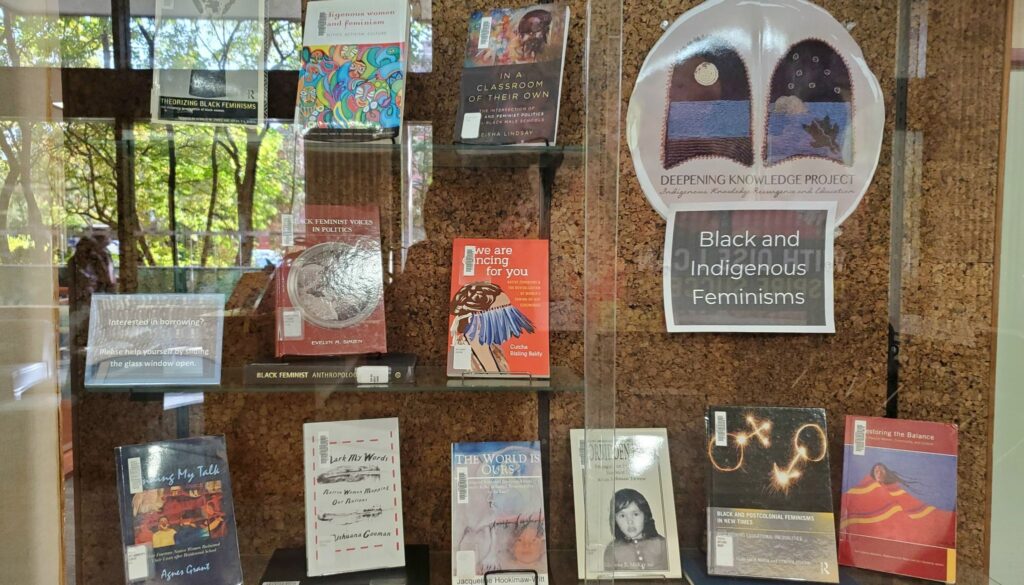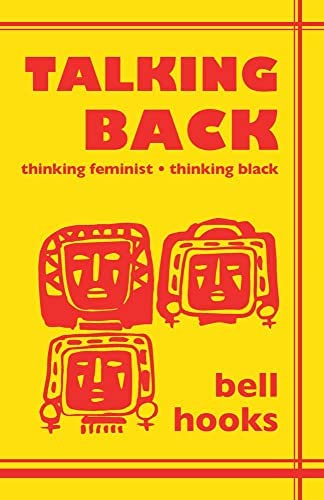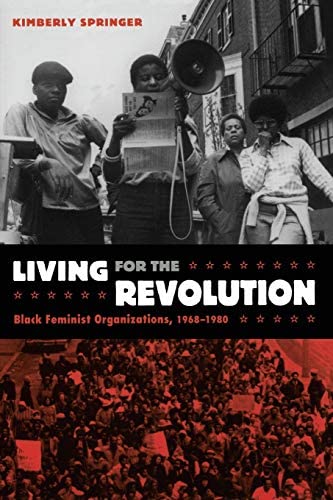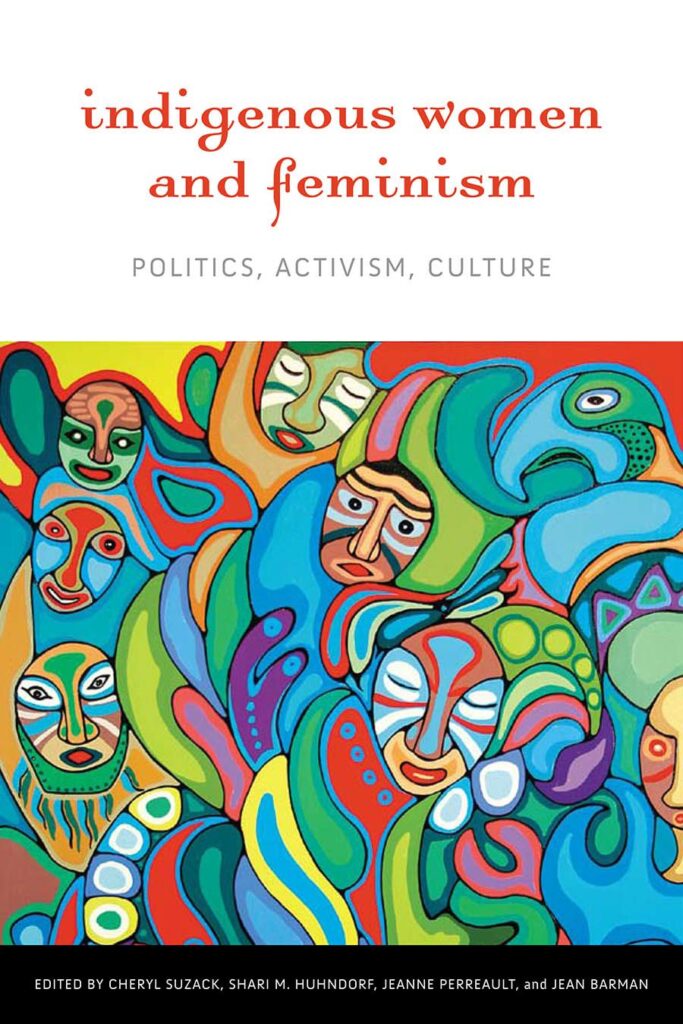
This month in October, our Indigenous Ground Floor display features books on Black and Indigenous Feminisms. Black Feminism is grounded in Black women’s lived experiences through oppression in various forms of racism and sexism, and Indigenous Feminism moreover aims to empower Indigenous women through focusing on decolonisation and sovereignty.
Each book in this display was curated with the intent to inform and centre Black and Indigenous voices within the lens of intersectionality; to further celebrate and honour the resilience of their respective communities.

Talking Back: Thinking Feminist, Thinking Black (1988) by bell hooks is a collection of anecdotal and theoretical essays which investigate the lived experiences of Black women in North America. Beginning with recounted childhood memories in Hooks’ journey to finding her own voice, she “was taught that “talking back” meant speaking as an equal to an authority figure and daring to disagree and/or have an opinion.” As Hooks interrogates this notion, she addresses the racist and sexist stereotypes Black women often encounter when speaking up. Despite these challenges, Hooks encourages Black women to break their silences in order to find healing and empowerment in communicating their truths.

Living for the Revolution: Black Feminist Organizations, 1968-1980 (2005) by Kimberly Springer examines social movement theory in the context of Black Feminist activism and organizations that were first founded in 1968 and later defunct by 1980. Springer begins her analysis by highlighting how Black women realised their voices were unheard within the Civil Rights and Women’s Rights movements. As a result, Black women began to establish their own collective identities through creating formal organizations that focused on Black Feminist consciousness. Through the use of oral interviews and archival materials, Springer helps fill in historical gaps with authentic and reliable evidence of the revolution to empower Black Feminist voices.

Indigenous Women and Feminism: Politics, Activism, Culture (2010) edited by Cheryl Suzack, Shari M. Huhndorf, Jeanne Perreault, and Jean Barman explores a curated variety of works between women activists, artists, community organisers, and scholars. In this collection of essays, each author thoughtfully engages in the political and social positions of Indigenous women within North America. By juxtaposing observations surrounding the historical and contemporary roles of Indigenous women, the effects of colonisation becomes more apparent. Each essay highlights how the Indigenous women were confronted by imposed patriarchal systems of oppression, resulting in the dismissal of their voices, thoughts, and authority in our society today.

Finding a Way to the Heart: Feminist Writings on Aboriginal and Women’s History in Canada (2012) edited by Jarvis Brownlie and Valerie Korinek, who are both University of Toronto alumni— is a collection of writings by Feminist scholars who examine gender, race, identity, and colonisation within Canada in the early 19th to late 20th century. As a tribute to Sylvia Van Kirk’s earlier work, Many Tender Ties: Women in fur-trade society in Western Canada, 1670-1870, each essay centres Indigenous women and their voices when exploring the history of transnational relations and conflicts that were rooted in imperialism during the fur trade.
Please do not hesitate to open up the case and check out these books, or ask the Reference and Circulation Desk for assistance.
